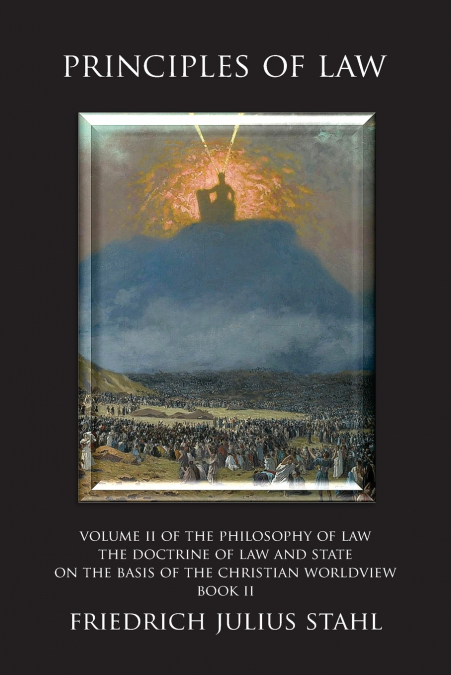
Friedrich Julius Stahl / Ruben Alvarado
The Christian difference to the legal order is not to be found in any religious test or requirement of conformity, but in the Christian character of legal institutions. Stahl accomplishes this by making institutions rather than actions the cornerstone of law. Law is a general rule, not a specific command; and institutions, not persons, are its primary object. Persons operate within the framework established by law, but that law is an external, objective framework, not an internal, subjective one. The right of the person and the rights of persons are established and defended precisely by this objectively Christian order. Therefore, what is Christian about this legal order is the principles, the law-ideas, upon which it is based, not the level of faith of those living within it. This Christian orientation also demands a respect for the inheritance of the nation, conservation of its received institutions and laws. Law is rooted in custom and tradition, supplemented through legislation. The courts are bound to the law as the expression of the historical people, not ephemeral public opinion. The major error of modern legal philosophy is its natural-rights orientation, which makes law and the state into the creatures of individual choice, in which individuals through a social contract choose to leave the 'state of nature' and form a government and a set of laws under which to be ruled. This whole approach is oblivious to the fact that human social order, being an inheritance, is a higher order transcending individual choice.Modern legal philosophy compounds its error by making natural law into a directly applicable legal standard, or alternatively by abandoning the law to the play of interests, cutting off any influence from higher principles. For its part, natural law lacks objectivity, universal recognition, and publicity in the sense that it can be known by everyone ahead of time; it therefore cannot be enforced by the state. In fact, to do so is to establish opinion and thus injustice as law. God’s divine order is the archetype of law, but it is not directly applicable as law. In fact, God commands that the law as it stands is to be obeyed, regardless of its correspondence to the higher principles of law. Human freedom under God is the freedom to crystallize and make concrete those God-revealed principles of law as a positive legal order. In this second edition of Principles of Law, there is no difference in content as compared with the first, but the text has been corrected where necessary and improved where appropriate.